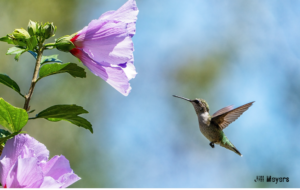
That perfect first line.
How we chase it, scrambling phrases and our brains, seeking magic words to pop open our stories like magic keys. ( Sometimes, I want to create an entire book when a great beginning sentence pops into my head.)
“There’s one thing I’m sure about. An opening line should invite the reader to begin the story. It should say: Listen. Come in here. You want to know about this.”—Stephen King
Tougher can be that last line—tougher because it’s culminating an entire world.
The last line is a writer’s goodbye to her characters and readers, wrapping up their thoughts without staying too long at the party; the writer wants to leave the reader with a lingering taste of the characters—enough to let the reader feel that the men, women, and children with whom they’ve just spent hours, will continue on their journey.
When we love a book, we need to think that we may someday meet the characters again.
Last lines should have an impact, but not shout; never bash us over the head with their meaning. And in the best of worlds, the end should lasso us to the beginning.
Below are lines from some of my favorite books—fiction and some not. Books where in the first line, I taste the thrust of the book, the intent, and then appreciate the way the last lines ring back to the beginning.
Half A Life by Darin Strauss (A memoir)
First line: Half my life ago, I killed a girl.
I had just turned eighteen, and when you drive in new post-adolescence, you drive with friends.
Last: But we keep making our way, as we have to. We’re all pretty much able to deal even with the worst life can fire at us, if we simply admit that it is very difficult. I think that’s the whole of the answer. We make our way, and effort and time give us cushion and dignity. And as we age, we’re riding higher in the saddle, seeing more terrain.
So it’s an epiphany after all. You have it in your hand the whole time.
The Forest for the Trees by Betsy Lerner (an instructional memoir:)
First: I never dreamed of becoming an editor.
Last: No matter how often or how vociferously writers are attacked, no matter how many hearts are broken in pursuit of publication or how many authors discouraged in their lonely work, there will always be a brilliant conspiracy between author and reader.
Silver Sparrow by Tayari Jones ( a novel:)
First: My father, James Witherspoon, is a bigamist. He was already married ten years when he first clamped eyes on my mother.
Last: People say, That which doesn’t kill you makes you stronger. But they are wrong. What doesn’t kill you, doesn’t kill you. That’s all you get. That’s all you get. Sometimes, you just have to hope that’s enough.
Looking back at these firsts and lasts, I see the connective tissue in all of them, and I wonder how many authors do this consciously and how many worked for this circle without deliberation (like I have in some of my novels—surprising myself at how the undermind can do the work.)
After writing the first lines a hundred ways with some novels, I’ve had the last appear like gold. Other times, the first dances right onto the page, while the final line takes weeks.
In The Murderer’s Daughter, the first lines didn’t come for a long long time—and when they did, I felt as though someone had slipped it into my mind when I wasn’t looking:
I wasn’t surprised when Mama asked me to save her life. By my first week in kindergarten, I knew she was no macaroni-necklace-wearing kind of mother. Essentially, Mama regarded me as a miniature hand-servant.
When I wrote Accidents of Marriage, I had the first line from almost the very beginning:
Maddy ran her tongue over her teeth, imagining the bitter taste of a crumbling tablet of Xanax.
With The Widow of Wall Street, the first line came late in the process, but when it came, it socked me right in the gut, feeling like the words stuck the landing.
First: Phoebe never hated her husband more than when she visited him in prison.
Yet, in a rare moment of grace, never seen before or after, that novel’s last lines slid onto the page like some angel wrote them for me:
Last: She remembered the most important lessons of her life. Fortunate are those who can dry the tears of others. Blessed are those who can hold their families and friends close.
With each novel, I learn the same lesson: there is no formula, just the hard work, the revisiting and revising, and sometimes, when you’re lucky, those moments of magic. Like most things we attempt (banana bread! afghans! painted toenails!) some take longer than others. But we try to never accept the almost there.
Writing requires a delicate balance of hard work and catching the alchemy.
When the keys align,
Writers wave the wand,
Readers feel the magic.
And it works.
You’ve stuck the landing.